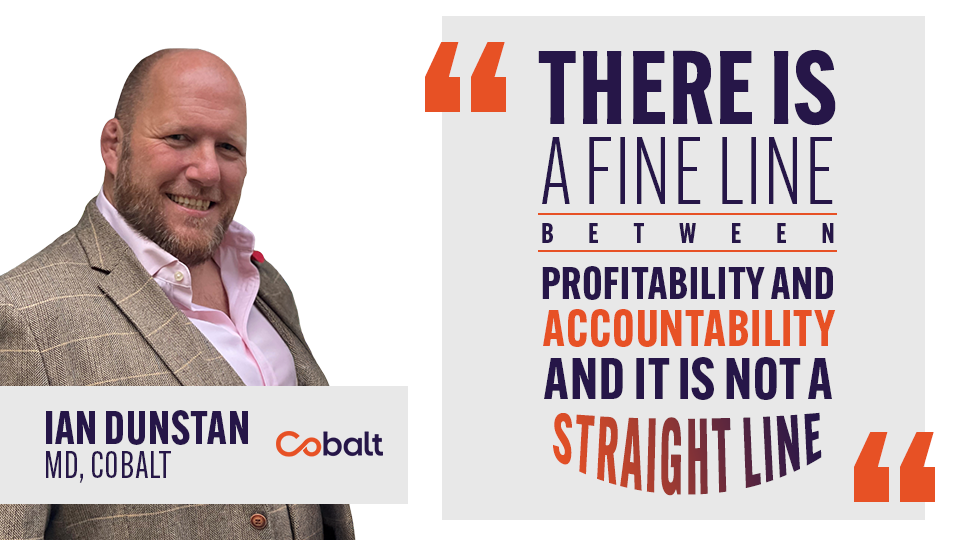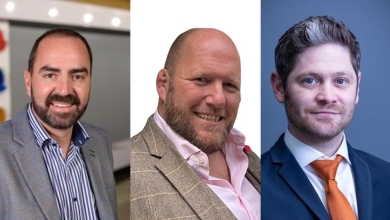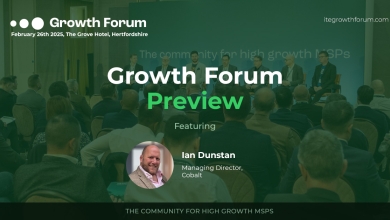
Cobalt’s sustainability strategy is driven by moral obligations and smart business decisions in equal parts, according to MD Ian Dunstan taking to IT Europa ahead of its upcoming High Growth 50: Sustainability report. Here, he explains how a pragmatic view of the profit vs purpose debate enables Cobalt to continue growing whilst staying more sustainable than the bulk of its industry peers.
Exeter-based MSP Cobalt is in its fourth year of being a fully carbon neutral company. This has not been done to gain competitive advantage or to attain specific certifications, according to Dunstan, but is the result of cost-saving actions and an aim to be less wasteful. “We jumped on this carbon reduction journey after a talk from Zen Internet’s former CEO Paul Stobart at Comms Vision five years ago,” he said. “We went back and looked at the business and realised we're already in a good place due to our innovation and decisions I had made purely around cost.”
These decisions included changing bulbs to low energy equivalents, putting machines on timers every night and recycling customer’s old technology. “These are morally driven decisions because any waste inside a business is a bad thing, but they are also changes that any smart businessman should be doing to save money here and there.” The process was then around formalisation and making changes to achieve carbon offsetting. This included moving to a premise with better insulation and heat exchangers to keep energy bills low.
Dunstan continues to drive Cobalt’s carbon journey with incremental improvements including adding solar panels to its building using a grant from East Devon District Council and substituting diesel vans with electric vehicles when their renewal comes up this year. This has been driven by Cobalt’s leadership and Dunstan has no expectation of his staff to fully buy in. “We work in an industry with lots of engineers and technical salespeople”, he said. “They can be quite hard-nosed and cutthroat. I don’t expect my staff to be down the pub telling their friends they are working for an organisation that is carbon neutral and sustainably focused.”
This comes from an acknowledgement that Cobalt is a company first and as such, Dunstan does not put sustainability above its profits. For example, when deciding on vendor partnerships, carbon neutrality is important but still sits behind price and quality as a priority. “There is a fine line between profitability and accountability, and it is not a straight line,” said Dunstan. “We will continue to do the right thing, but we can’t make our incremental changes if we don’t have profit in the bank account at the end of the month.”
Actions speak louder than words
Dunstan has chosen to go undertake this mission without seeking B Corp certification, or other similar frameworks. He asserts that many organisations are setting goals simply to be able to tender for stringent frameworks. Government tenders were a kickstart for most companies now claiming to be green as they asked how carbon was measured and monitored and what their goals where. This would have to be proven before a price was put in and was given great weighting.”
“There are lots of organisations that hit these criteria but aren’t actually doing anything,” he said. “More companies need to take action as opposed to saying that they are taking action.” He stated that frameworks can be important starting points for those with the right motivations but can be something to hide behind for those doing it for the wrong reasons.
Cobalt measures and provides clear visibility of targets without such frameworks. “When we started, we looked at our own output to see where we were creating carbon within the day to day running of the business,” he said. Cobalt measures transport using TeslaFi to account for its fleet and the Trainline app to quantify carbon saved against driving. The more difficult task came with measuring supply chain emissions, according to Dunstan, as not all vendors give clear numbers. To overcome this, Cobalt worked with an agency named Blue Marble to come up with an accurate estimation and identified a non-deforestation project in South Africa to offset this.
Jump or be pushed
Although Dunstan is sceptical about the motivations of many green organisations, he confessed this isn’t necessarily a negative. “Any step on this journey is a good thing,” he said. “Whatever the impetus behind it may be. Something must drive people because the mindset for many is that it is an expense. It is easy for companies to look at the like of China and think there is no point because what we do won’t have an impact, but we have the chance to lead the world in many ways.”
He adds that these motivations will only increase, and carbon reduction is going to become more of an imperative for companies. “The government procurement push lost its drive two years ago as they brought it in before most companies were ready, but it’s a certainty that it will come back,” he said. “The industry is also going to be moved because of the price of energy with forced innovation and tidying of emissions due to the bills that are coming through. We made these choices before they were forced on us and its time for others to play catch up.”

